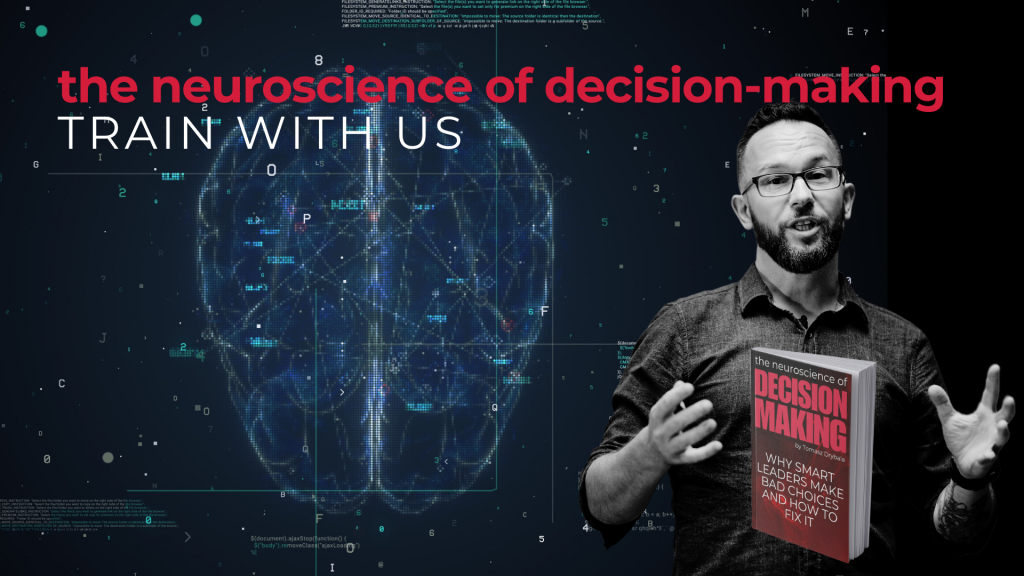In the fast-paced world of technology leadership, data-driven decisions are essential. You’ve been through it all—analyzing market trends, reviewing performance metrics, and gathering feedback from your team. But even with all the data at your fingertips, there are moments when a decision that felt so right later turns out to be a misstep. Why does this happen?
It’s not because you lacked the necessary information; rather, it’s likely because you were unknowingly influenced by confirmation bias—the brain’s tendency to favor information that aligns with your existing beliefs and goals. And, surprise: even the most seasoned tech leaders are not immune to it.
What Is Confirmation Bias?
At its core, confirmation bias is a mental shortcut our brains use to simplify complex decisions. It leads us to seek out, interpret, and remember evidence that supports what we already believe while overlooking or dismissing contradictory information. This cognitive bias worked well in our evolutionary past, helping our ancestors make quick decisions without overthinking. But today, especially in the fast-paced tech industry, confirmation bias can significantly affect even the most informed decisions.
Here’s the kicker: Research shows that top executives, despite their experience and reliance on data, often fall prey to confirmation bias. In fact, they are 70% more likely to approve projects when the data aligns with their pre-existing beliefs, even when counter-evidence exists. Similarly, 58% of teams ignore critical feedback that contradicts their assumptions, leading to delayed projects, cost overruns, and missed opportunities.
The Neurochemistry of Confirmation Bias
Why does this happen? It’s all about efficiency. The brain processes billions of pieces of information each day. To keep things manageable, it uses cognitive shortcuts—or heuristics. Confirmation bias is one such shortcut, allowing us to quickly filter through vast amounts of data.
When we encounter information that supports our beliefs, the brain releases dopamine, a neurotransmitter associated with pleasure and reward. This “feel-good” chemical reinforces our choices, making us feel validated and confident in our decisions. However, dopamine can trick us into thinking we’re making the right choice, even when we’re overlooking critical data.
On the flip side, when we come across information that challenges our beliefs, the brain releases cortisol, a stress hormone. This makes us feel uncomfortable and may cause us to avoid engaging with conflicting information. To relieve this discomfort, our brain seeks out confirming evidence, which perpetuates the cycle of confirmation bias.
How Confirmation Bias Impacts Leadership Decisions
The effects of confirmation bias are not theoretical; they are real and can have significant consequences, even in high-performing organizations. Let’s look at a few examples from the tech industry:
- Yahoo’s Decline: Yahoo’s leadership continued to believe their search engine model would dominate, ignoring the rise of Google’s algorithm-based search. By clinging to outdated assumptions, Yahoo missed critical shifts in the market and ultimately lost its lead.
- Tesla’s Production Delays: Tesla’s leadership, overly confident in their rapid growth potential, dismissed production challenges. Their confirmation bias led them to overlook critical logistical issues, causing delays and cost overruns.
- Uber’s Regulatory Challenges: Uber’s leadership disregarded the legal and regulatory concerns in key markets. Their confirmation bias led them to believe their disruptive service would overcome any resistance, ignoring critical regulatory feedback. This delay in addressing the issue led to costly legal battles.
Why Even Experienced Leaders Are Vulnerable
Let’s consider a more relatable example from the neuroscience perspective:
Imagine you’re a successful tech founder who has built a strong belief in the future potential of a specific market. You have access to thorough industry reports and data that show market shifts, but you find yourself paying more attention to the data that supports your belief. This isn’t because you’re ignoring evidence; it’s because confirmation bias is naturally at play. When you encounter a positive trend or optimistic report, your brain releases dopamine, reinforcing your belief. This emotional validation can make you overconfident, causing you to overlook critical details that don’t fit your narrative.
Recognizing Confirmation Bias in Your Decision-Making
As a leader, it’s crucial to understand how confirmation bias works and how it affects your decisions. One way to start is by reflecting on your recent decisions and analyzing how dopamine and cortisol might have influenced your choices.
Here’s a simple exercise you can do to build this awareness:
- Reflect on a decision you made recently that turned out to be a mistake or required correction.
- Consider how dopamine influenced you. Did you feel validated or confident when you found information that supported your belief? Write down the emotional impact this had on your decision.
- Analyze how cortisol played a role when confronted with contradictory evidence. Did you feel stressed or uncomfortable? Did this influence how you responded to the data?
This reflection will help you gain insights into how dopamine reinforces your decision-making and how cortisol creates resistance to conflicting information.
A Structured Decision-Making Framework
Understanding confirmation bias is only the first step. The key to improving your decision-making is integrating a structured decision-making framework that accounts for these neurochemical influences.
If you’re interested in a framework designed to help you manage confirmation bias and make more balanced, data-driven decisions, contact us. Our program offers tools and strategies to recognize and mitigate cognitive biases, helping you become a more effective, objective leader.
Conclusion
As a tech leader, recognizing and understanding the role of confirmation bias is essential for making better decisions. By being mindful of how dopamine and cortisol shape your choices, you can improve your objectivity, adapt more effectively to new information, and enhance your leadership capabilities. And if you’re ready to take your decision-making to the next level, get in touch with us to learn more about our structured decision-making framework.
Don’t let confirmation bias hold you back from your next big breakthrough.

